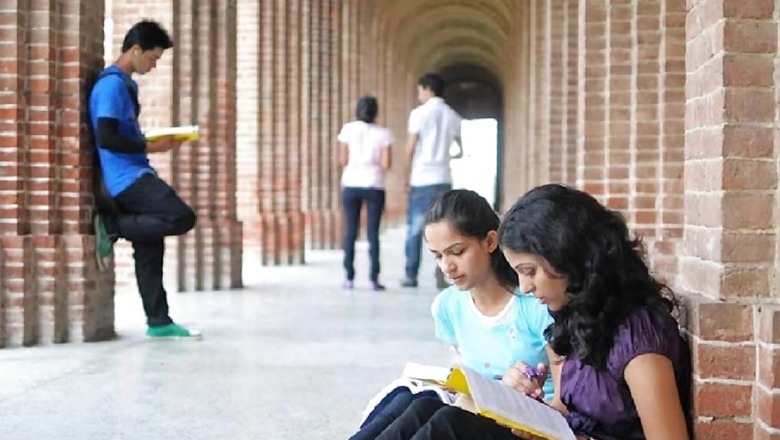
views
The Union Cabinet, chaired by Prime Minister Narendra Modi, on Wednesday approved the new NEP and renamed the HRD Ministry as Education Ministry. A single regulator for higher education institutions, multiple entry and exit options in degree courses, discontinuation of MPhil programmes, low stakes board exams, common entrance exams for universities are among the highlights of the NEP.
Here's what the education policy means for different sections of the society:
What does the new education policy mean for school-goers?
• The medium of instruction till grade 5 and preferably till 8 will be in the local language. So a student in central Bihar may get his first instructions in a local dialect, which in this would be Maghahi.
• More than one attempt to clear boards or improve performance.
• No rigid formation of streams of arts, commerce, science, and students can take up whichever courses they want.
• Report cards will be a comprehensive report on skills and capabilities, instead of just marks and statements.
• Vocational courses with internship for Class 6 onwards for students who want to opt out of formal education and pursue any trade or craft.
What does the new education policy mean for higher education?
• Four year degree course in conformity with foreign institutions, helps students who want to pursue masters program abroad.
• Multiple entry and exit points, credit system make courses flexible for students who do not want to pursue research.
• Flexibility in the curriculum. You can study literature as a pass subject with your science degree.
• Students who had dropped out in the middle of a program can now resume their course from where they had left off.
What does the new education policy mean for colleges and universities?
• There will be a common entrance exam conducted by the National Testing Agency (NTA) for admission to universities and higher education institutions.
• A single regulator helps cut red tape to bring in transparency in accreditation and approval mechanism.
• Even engineering institutions, such as IITs, will be expected to move towards more holistic and multidisciplinary education with more arts and humanities.
What does the new education policy mean for researchers?
• Only serious research scholars continue till 4 years in the graduation course.
• M Phil is scrapped, so only those who want to pursue higher education and research as a career option continue beyond 3rd year in the degree course.
What does the new education policy mean for investors and entrepreneurs?
• Public investment in education reach 6 per cent of the GDP. This means more opportunities and facilities for both teachers and students.
• Helps top institutes in India to expand and set up shops abroad.
What does the new education policy mean for parents?
• With vocational courses and informal internships being institutionalised, parents, especially in rural households, can now encourage their children to take up courses in farming etc.
• Foreign universities to be allowed to set up their shops in India. This means students need not travel abroad for quality higher education.
• Can be a super saver for those seeking a degree from an Ivy League College.
Industry
A research oriented higher education dovetails with industry to foster innovation In science and technology. A win-win situation for both.
Politicians:
Policy skirts clear of three language formula. Given enough room to states to choose medium of education to avert any backlash from non-Hindi speaking provinces.



















Comments
0 comment